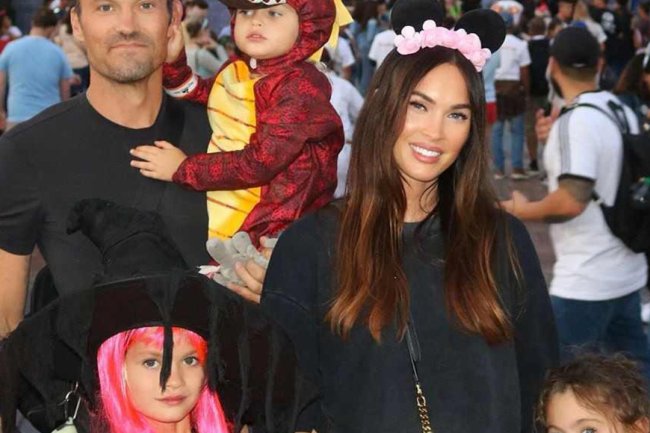Olivia Rodrigo and the Art of Doing the Same Thing Twice
From its quiet piano intro to the use of the color purple, the new single ‘Vampire’ builds on the star’s older ‘Drivers License’—and that’s not necessarily a bad thing Singer Olivia Rodrigo’s new song is mostly a return to form. Davis Bates Davis Bates By Neil Shah July 6, 2023 10:00 am ET Olivia Rodrigo is betting that she knows what her fans want: mostly more of the same. After two years, the pop singer-songwriter who made waves with a best new artist Grammy and a blockbuster album, “Sour,” has finally returned with a new song, “Vampire.” It’s the lead single from her second album, “Guts,” out Sept. 8. The track—a piano-driven pop-rock anthem about a toxic breakup—is her first pop-mu


Olivia Rodrigo is betting that she knows what her fans want: mostly more of the same.
After two years, the pop singer-songwriter who made waves with a best new artist Grammy and a blockbuster album, “Sour,” has finally returned with a new song, “Vampire.” It’s the lead single from her second album, “Guts,” out Sept. 8.
The track—a piano-driven pop-rock anthem about a toxic breakup—is her first pop-music release since her smashing debut in 2021 and resembles the music on that album in many ways. But not embarking on a new and distinct “era” hasn’t hurt her yet. Since its release on Friday, “Vampire” has become the No. 1 song on Spotify. By next week, it’s likely to land in the upper reaches of Billboard’s Hot 100 singles chart—if it doesn’t top it outright.

‘Vampire’ is about a bad breakup.
Photo: Geffen Records
“You’d think that after a whole album of scorned breakup songs, Rodrigo would need to pivot to keep things interesting,” Chris DeVille, managing editor of the website Stereogum, wrote in a recent piece. “Instead, she has found continued vitality by doubling down on her core themes and tweaking her signature style.”
Like “Drivers License,” “Vampire” is a power ballad about romantic disappointment that foregrounds Rodrigo’s theatrical vocals and raw, direct, anguished lyrics against a backdrop of alternative rock-tinged pop.
Rodrigo’s publicity materials describe “Vampire” as being about a “toxic romance that drains your very life force.” It starts off, like “Drivers License,” in a muted way, with just Rodrigo’s voice and piano. Gradually—again, like its predecessor—it layers on new elements. This time around, the 20-year-old Rodrigo goes for a bigger, more bombastic sound, using up-tempo, dance-y drumbeats and pounding piano chords. She also evinces a new maturity—she sounds less passive and more empowered. There are hints of 1970s piano-based rock (think Elton John or Billy Joel) and 2000s emo theatricality (My Chemical Romance), culminating in what Rodrigo calls “a heartbreak song you can dance to.”
Nevertheless, “Vampire” keeps Rodrigo in familiar artistic territory. She co-wrote it, like “Drivers License,” with her main collaborator, Dan Nigro, who is the producer for both “Sour” and “Guts.” She’s long dabbled in emo and pop-punk. The music video for “Vampire,” also released on June 30, was helmed by Petra Collins, who handled some of Rodrigo’s past videos, including the No. 1 hit “Good 4 U.” Even the violet hues of the cover artwork for Rodrigo’s coming album seem to echo “Sour.”
In a recent interview with Billboard, Rodrigo said “Vampire” “felt like an evolution—in a good way that wasn’t too stark.”
Music stars are often criticized for treading water artistically, including those making sophomore albums after culture-shifting successes. But the discussion of Rodrigo’s new single also raises the broader question of whether fans’ increasingly intense demands for new “eras” or “chapters” with every album have become limiting.
“She and her writing partner are going for organic growth and developing on what they did the first time, and that is the most appropriate thing for young acts to do,” said Matthew Perpetua, founder of Fluxblog, an independent music website. “I can think of no better way for her to fail and lose her audience than by switching gears and jumping on someone else’s thing when she has her own thing and prior to this—what—13 songs total?”
Throughout pop history, musicians have felt pressure to adventure musically even when what they’ve got going is working just fine. That is partly because many of music’s most venerated artists—the Beatles, David Bowie, Madonna, Radiohead, Kanye West, Taylor Swift—owe much of their hallowed reputations to their dramatic and often era-defining stylistic shifts.
Today, pop fans and artists themselves routinely think in terms of eras—Rodrigo recently referred to herself as being in a “new chapter.” Taylor Swift, one of Rodrigo’s influences, who received songwriting credits (and royalties) for Rodrigo’s hit “Deja Vu,” is famous for giving each of her albums its own aesthetic. The entire premise of Swift’s ongoing “Eras” tour is based on such shifts, most obviously her two-step move from country to pop on her albums “Red” and “1989.” Another of Rodrigo’s influences, Lorde, once expressed anxiety about staying interesting to her fans on her song “Liability,” where she sings of being “a toy that people enjoy / Til all of the tricks don’t work anymore.”
In Rodrigo’s case, anticipation for her new music has been especially intense because of the outsize success of “Sour”—it was recently certified four-times platinum in the U.S. and earned Rodrigo nominations in all four of the most important Grammy categories, including her win for best new artist. Her dearth of musical activity since has only upped expectations.
Sticking with a formula that works can sometimes be the more courageous—and creatively fruitful—path when the history books are written.
Back in 2003, music critics piled on New York rock band the Strokes, saying that the band didn’t alter their sound significantly on their second album, “Room on Fire,” the follow-up to 2001’s landmark “Is This It.” As time has passed, many critics and fans have come to embrace “Room on Fire”—some even prefer it.
Write to Neil Shah at [email protected]
more in music:
What's Your Reaction?













